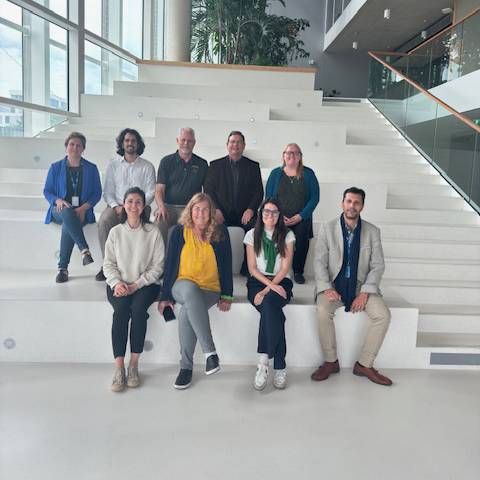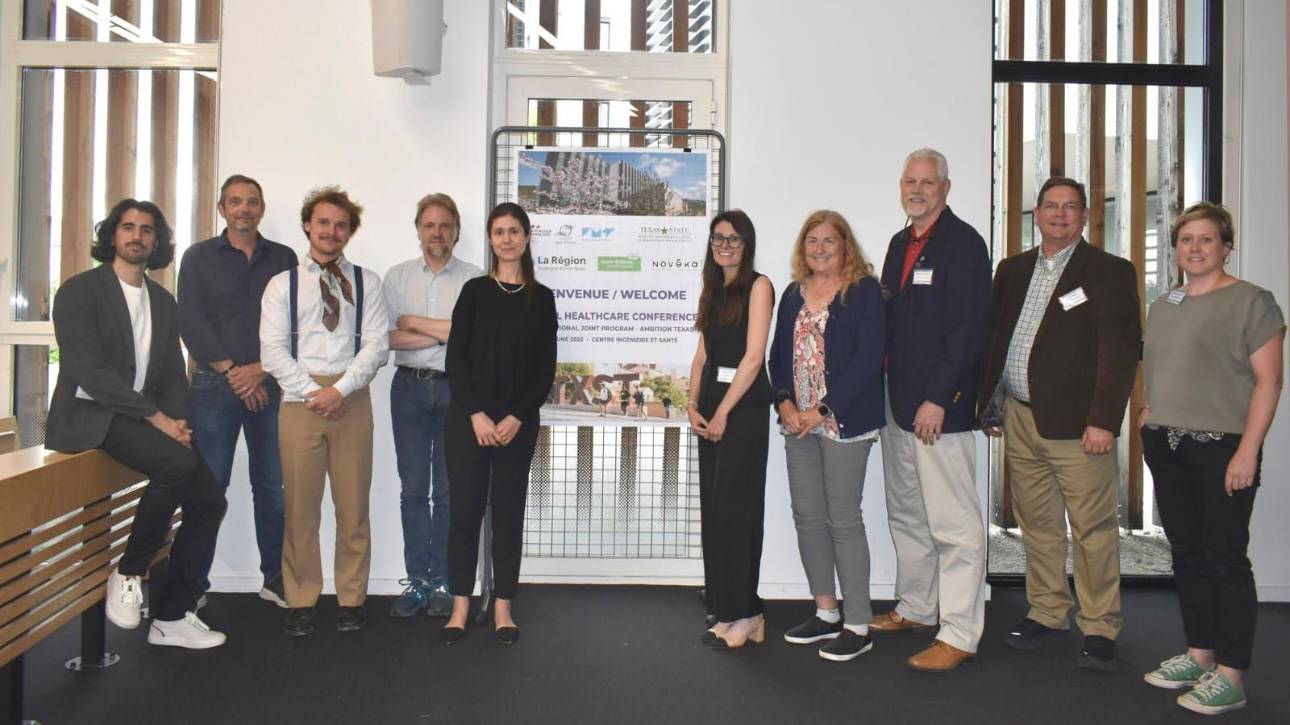Texas State University has partnered with MINES Saint-Étienne, a French graduate engineering school and research institute founded in 1816, to launch the SHIFT (Shaping Healthcare Innovation for the Future of Technology) Program.
The program, managed by TXST’s Education Abroad program through a three-year grant, is an 18-day, three-hour international course that educates students on topics surrounding interoperability, health, AI, digital literacy, social responsibility, ethics and governance, data quality, collection and use, project management, and cybersecurity.
Elise Lambert, Ph.D., clinical assistant professor in the Department of Health Informatics and Information Management, met with her colleague in France to develop and host a digital health conference this summer to kick off the grant.
During the conference, faculty members from TXST, including Barbara Hewitt, Ph.D., David Gibbs, Ph.D., and Rodney Rohde, Ph.D., and from MINES, along with industry partners and governmental agencies, gathered for five days to determine challenges, strategies, gaps in the workforce, and education surrounding digital health that Lambert could apply to the summer school program.
“Those concepts and topics helped build the competencies that we will need to map for the summer school program in 2026 and 2027,” said Lambert, who will be teaching in the program. “What’s unique about our program, outside the fact that it’s an international collaboration, is students will be learning about the challenges in healthcare that are rooted in the same issues in the U.S. and other countries.”

With faculty members from both universities, the multidisciplinary program will accept a minimum of eight TXST students and can support up to 50 students total from across the globe.
Lambert noted that topics such as data quality, data use, and cybersecurity are areas that students often haven’t been broadly exposed to in their studies. While many may take individual courses on these subjects, the program aims to go beyond foundational knowledge—exploring the real-world challenges that arise as technology continues to evolve within the healthcare sector.
“When dealing with someone’s life, we have to think in the future, right?” Lambert said. “Part of the course will be lecture-based, and part will be hands-on learning. Students will have case studies that they’ll work on individually or as a team. Then we’ll have coaches and judges for a hackathon at the very end that will be a culmination of everything they’ve learned in the program.”
Students will also have the opportunity to take part in industry visits to hear from the program’s healthcare partners about what issues they face around digital health innovation. Through the visits, Lambert hopes that the students will leave feeling like they experienced the workplace and witnessed the bigger picture around healthcare.
In addition to the coursework and industry visits, students can also expect tourism outings, like museum visits, trips to regional parks, dinners, and hiking.
“We want to make sure that students are gaining the cultural aspects of the program,” Lambert said. “It’s also important to have students go somewhere where industry partners might not be super fluent in English to experience those challenges.”
The cost for the SHIFT Program is estimated to be $3,700, not including flight costs or tuition. The application for the program opens in October for eligible students and closes in January 2026. As part of the grant, funding is available to provide a scholarship for one student to cover travel, most meals, housing, and the program fee.
Visit the SHIFT Program website for more information.
